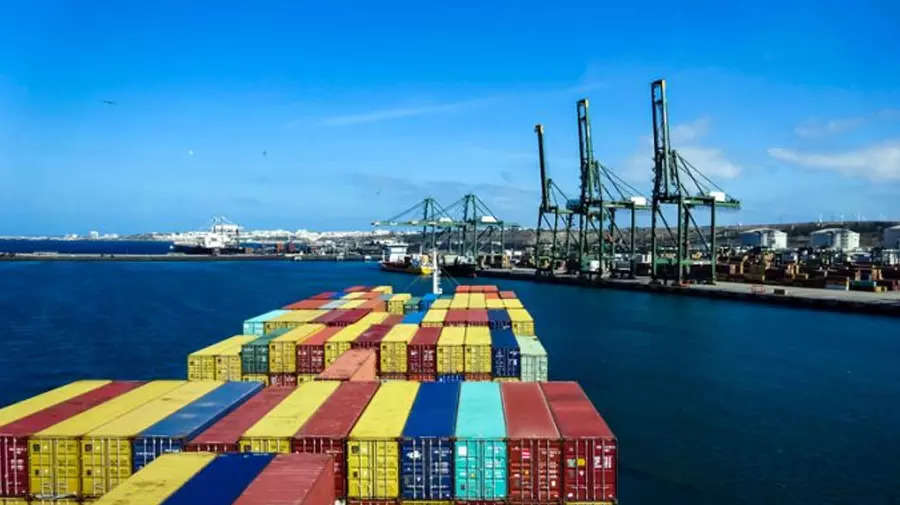
South Africa and India ramped up their political and trade ties in 2021 and the coronavirus crisis presented an opportunity to the two countries to extend cooperation in fighting the deadly pandemic.
South Africa, like most of the rest of the world, started and ended 2021 with serious COVID-19 issues, with the pandemic looking set to dominate for a third year in a row in 2022. In January, South Africa was in the midst of its second wave and as the year was drawing to a close, a fourth wave hit the country following the discovery of the new and highly transmissible Omicron variant in November.
In February, Prime Minister Narendra Modi had a telephone conversation with South African President Cyril Ramaphosa and they discussed the continuing challenges posed by the COVID-19 pandemic. The two leaders also discussed possibilities of collaboration between India and South Africa in various international platforms, to facilitate access and affordability of vaccines and medicines. Prime Minister Modi reiterated to the South African President that India’s considerable productive capacity for pharmaceuticals and vaccines would continue to serve the needs of all countries, including those in Africa.
A week before the two leaders’ conversation, made-in-India vaccines had reached South Africa in an aircraft with President Ramaphosa receiving the consignment of doses. The current wave of the pandemic did not spare President Ramaphosa, who had to isolate himself after getting infected, forcing him to hand over his duties to Deputy President David Mabuza.
Just days before he felt ill, Ramaphosa asked the scientists of the BRICS countries to work together in developing solutions for the pandemic. “The collaboration among BRICS countries is intended to broaden our knowledge of the COVID-19 virus not only for the benefit of member countries but for the global community more broadly,” Ramaphosa said. Amid rapidly changing travel bans, Ramaphosa said during his State of the Nation address in February that India was one of the countries that South Africa was looking to as it sought to import skills and boost tourism in the wake of the economic crisis caused by the COVID-19 pandemic.
The economic slump caused by COVID-19 failed to deter Indian businesses from scaling up their production and expanding commercial footprint in South Africa. India was the top country of origin for vehicle imports into South Africa despite the lengthy COVID-19 lockdowns and overall declines in vehicle sales in 2020, according to the 2021 Automotive Export Manual report released by the Automotive Industry Export Council.
ArcelorMittal South Africa (AMSA), a subsidiary of London-based Indian steel magnate Lakshmi Mittal’s Global steel giant ArcelorMittal, bounced back from a loss of 632 million rands (USD 39.6 million) in 2019 into a profit of 37 million rands (USD 2.3 million) for the previous fiscal year.
Mahindra further entrenched its position in the South African market with a massive investment in skills training in southern Africa by opening a bigger training centre, effectively doubling its capacity. The company also opened a new national parts warehouse larger than its old facility.
“South Africa is the regional hub for Mahindra and the brand’s second home outside of India. We will continue to support all levels of skill development to support the growing demand for Mahindra vehicles and the planned expansion on the continent,” said Rajesh Gupta, CEO of Mahindra South Africa.
Vedanta Zinc International started a new iron ore product line by ramping up iron ore production at its Black Mountain Mine (BMM) operations in Aggeneys in the Northern Cape province of South Africa. On the domestic front, South Africa saw arson attacks in mid-July following the jailing of former president Jacob Zuma.
Protests erupted in parts of KwaZulu-Natal (KZN), Zuma’s home province, after the ex-leader handed himself over to police to serve a 15-month jail term for contempt of court. A number of Hindu organisations across the African continent rallied to the call from India for assistance during its oxygen concentrator crisis. “This unparalleled crisis has brought us all together to collaborate in order to help our fellow Indians back home. It’s a very small gesture from us but would hopefully help in saving lives,” said John Francis, Event Director of India Club, who oversaw the entire operation.
The Indian missions across South Africa launched scaled-down celebrations of India’s 75th anniversary of independence this year, with lockdown restrictions reducing numbers. A major event was a project called ‘On the Gandhian Trail’, which took two busloads of people across seven towns where there are commemorative museums and busts marking Mahatma Gandhi’s two-decade fight against discrimination during his South African stay.
Among the places visited was the Phoenix Settlement started by Gandhi, where his granddaughter Ela Gandhi heads up a developmental centre. The Settlement, surrounded by three largely Black townships, remained unaffected by the rampant violence and looting in the townships surrounding it in July. Tensions between the local Black and Indian communities resulted in Ela Gandhi calling for India to help South Africa in its efforts to rebuild the country during an online seminar organised by the Indian missions in South Africa to mark Independence Day.
In the wake of the local government elections in South Africa, the Indian missions in Pretoria and Johannesburg organised a seminar titled ‘Story of World’s Largest Democracy’s Elections’. Glen Mashinini, the chairperson of the Independent Electoral Commission of South Africa, lauded the work of the Election Commission of India (ECI) as an example for the entire world. “The ECI provides the fountain of knowledge, understanding, and experience for all of us as electoral management bodies that are serving throughout the world,” Mashinini said.
Also Read:

